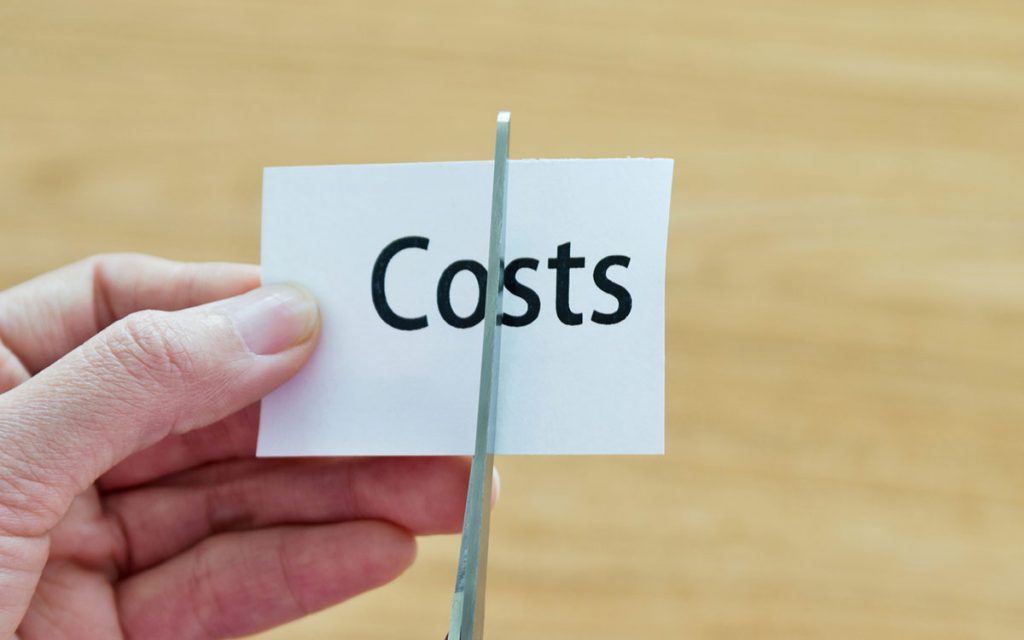Saving money just feels good, right? It can be exhilarating when you’ve received a good deal on something–and the bigger discount, the more satisfied you are. It’s a little too easy, then, to make the price your primary criteria–to always go for the least spendy option, to let your coupons make your consumer choices for you. When it comes to investing in a pair of hearing aids, chasing a bargain can be a big mistake.
If you need hearing aids to treat hearing loss, going for the “cheapest” option can have health consequences. After all, the whole point of getting hearing aids is to be able to hear clearly and to prevent health issues associated with hearing loss such as cognitive decline, depression, and an increased risk in falls. The trick is to find the hearing aid that best fits your lifestyle, your hearing needs, and your budget.
Tips for choosing affordable hearing aids
Affordable is not the same thing as cheap. Keep an eye on affordability and functionality. That will help you get the best hearing aid possible for your personal budget. These tips will help.
Tip #1: Do your homework: Affordable hearing aids exist
Hearing aids have a reputation for putting a dent in your pocketbook–a reputation, however, is not always reflected by reality. Most manufacturers produce hearing aids in a wide range of price points and work with financers to make their devices more affordable. If you’ve already decided that the most effective hearing aids are out of reach, you’re probably more likely to search the bargain bin than look for affordable and effective options–and that can have a long-term, detrimental impact on your hearing health.
Tip #2: Ask what’s covered
Insurance may cover some or all of the expenses related to getting a hearing aid. In fact, some states mandate that insurance cover them for both children and adults. It never hurts to ask. If you’re a veteran, you may be eligible for hearing aids through the government programs.
Tip #3: Look for hearing aids that can be calibrated to your hearing loss
In some ways, your hearing aids are a lot like prescription glasses. The frame is pretty universal (depending on your sense of style, of course), but the prescription is calibrated for your specific needs. Hearing aids, too, have specific settings–in most cases, calibrated by your hearing specialist–tailored to your exact needs.
Picking up a cheap hearing device from the clearance shelf is not going to give you the same results (or, in many cases, results that are even remotely helpful). These are more like amplification devices that increase the sound of all frequencies, not just the ones you’re having difficulty hearing. Why is this so important? Hearing loss is often uneven–you can hear some frequencies and voices, but not others. If you make it loud enough to hear the frequencies that are low, you’ll make it uncomfortable in the frequencies you can hear without a device. In other words, it doesn’t really solve the problem and you’ll end up not using the cheaper device.
Tip #4: Not all hearing aids do the same things
There’s a tendency to look at all of the great technology in modern hearing aids and think that it’s all extra–just bells and whistles. The problem is that in order to hear sounds properly (sounds such as, you know, bells and whistles), you likely need some of that technology. Hearing aids have specialized technologies calibrated specifically for those with hearing loss. Many modern models have artificial intelligence that helps block out background noise or communicate with each other to help you hear better. In addition, taking into account where (and why) you’ll be using your aids will help you choose a model that fits your lifestyle.
That technology is essential to compensate for your hearing loss in a healthy way. Hearing aids are much more sophisticated than a simple, tiny speaker that amplifies everything. Which brings us to our last tip.
Tip #5: A hearing amplification device is not a hearing aid
Okay, say this with me: a hearing amplification device is not a hearing aid. If you take nothing else away from this article, we hope it’s that. Because hearing amplification devices try very hard to make you think they do the same thing as a hearing aid for a fraction of the cost. But that simply isn’t true.
Let’s break it down. A hearing amplification device:
- Takes all sounds and makes them louder.
- Provides the user with little more than simple volume controls (if that).
- Is often cheaply made.
A hearing aid, on the other hand:
- Is calibrated to amplify only the frequencies you have difficulty hearing.
- Can pick out and amplify specific sound types (such as the human voice).
- Can limit background noise.
- Can be programmed with different settings for different locations.
- Can be molded specifically to your ears for maximum comfort.
- Have long-lasting batteries.
- Are adjusted specifically to your hearing loss symptoms by a highly qualified hearing professional.
- Are affordable.
- Will help protect your hearing health.
Your hearing deserves better than cheap
Everyone has a budget, and that budget is going to limit your hearing aid options no matter what price range you’re looking in.
That’s why we tend to emphasize the affordable part of this. The long-term benefits of hearing aids and hearing loss treatment are well documented. That’s why you should focus on an affordable solution. Just remember that your hearing deserves better than “cheap.”



